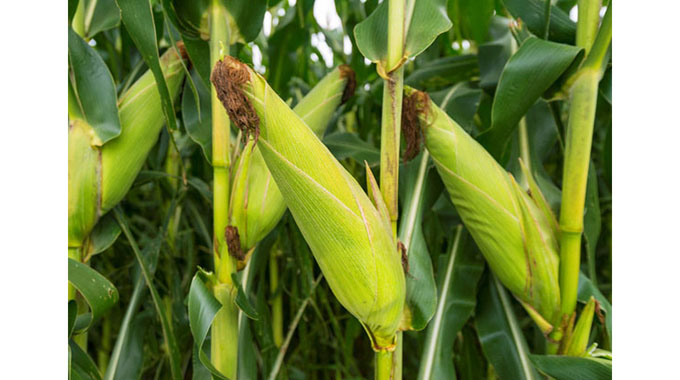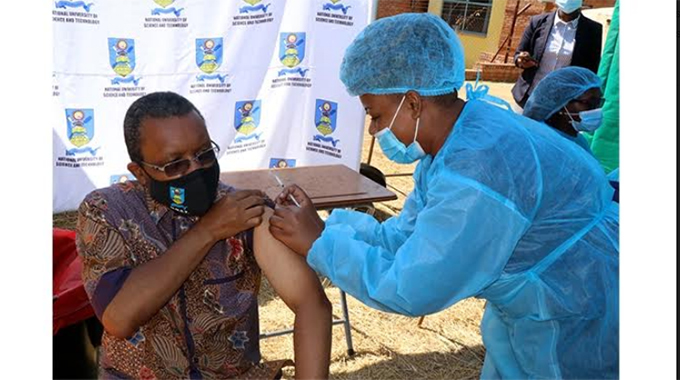Bumper crop icing on Independence cake

Sifelani Tsiko
Agriculture Editor
April 18 is the day when millions of Zimbabweans celebrate the most important and cherished day in the history of our country, the day of birth of our home and motherland Zimbabwe.
It is the glorious day when Zimbabwe got its much desired freedom from the oppressive rule of the white Rhodesian minority.
Freedom fighters and the masses under the great leadership of our founding nationalist figures steered the country to freedom.
The cost of this freedom was massive as many people sacrificed their lives, homes and other assets for the greater cause of this freedom.
The need to celebrate our Independence Day is very genuine and comes natural to patriots of this country.
And this year’s Independence Day is special in many ways as the country is expecting a bumper harvest.
Food security has remained at the core of the independence spirit. Growing what we eat as a country is at the heart of our real independence.
Growing what you eat is an essential key to understanding the breadth and depth of the true spirit of independence.
Zimbabwe is poised for a bumper crop harvest this season after the country experienced above average rains.

Good rains in the 2020/2021 cropping season, which were in the normal to above normal category, have brought hope and cheer to farmers who endured one of the worst droughts in years in the previous season.
The country is expecting a bumper crop that will improve the food security position in most households.
The Government expects this year’s maize harvest to be as high as 2,8 million tonnes, a huge jump from the 908 000 tonnes of maize harvested last year.
Zimbabwe’s national dam levels also registered a massive rise this season, the second highest in more than five decades after heavy rains were received in most parts of the country during the current summer season, according to the latest update from the Zimbabwe National Water Authority (ZINWA).
The anticipated bumper crop harvest could see Zimbabwe improving its food security position significantly, helping to cut the country’s food import bill and heavy dependency on humanitarian agencies for food aid.
A bumper crop has a positive bearing on the import bill, which should fall dramatically as food security is attained at household and national level, with surplus exported for revenue. Successive droughts over the past few years have negatively affected agricultural growth.
With the current crop hectarage and state of the crops, all indications are already pointing to a bumper harvest.
The improvement in hectarage under cropping has been attributed to early inputs distribution, especially under the Presidential Inputs programmes, training of farmers, empowerment and capacitation of extension workers and robust monitoring and evaluation as dictated by the Agricultural Recovery Plan. An aggressive Presidential Input support campaign has been a vital strategy for achieving food self-sufficiency.
The scheme has augmented crop production at household level through timeous distribution of inputs to the majority of the poor.
Capacitation of extension staff through increased mobility and appropriate training for effective technical back-stopping and coaching of farmers in light of Good Agricultural Practices also helped, thanks to President Mnangagwa, who mobilised 5 000 motorcycles for extension staff.
The introduction of conservation agriculture, popularly known as Pfumvudza/Intwasa, also motivated some poorly resourced farmers who did not have draught power after losing their oxen to tick-borne diseases or drought.
The early distribution of inputs resulted in most farmers who rely on rain fed agriculture planting with the first rains.
In recent years, droughts, climate change, the Covid-19, economic slowdowns and pests such as desert locusts and fall armyworm have corroded livelihoods and pushed more people into hunger and poverty.
It is against this backdrop that Zimbabwe must have a good reason to be thankful and cheerful as they mark the 41st Independence this year.
It’s a year of a good harvest and a year that we grew enough cereals to feed our growing population to reduce reliance on food imports.
Zimbabwe needs to break a culture of complacency and start now to invest more in agriculture to be able to feed itself.
Food aid is humiliating. Feeding oneself is more empowering.
An expansion of irrigation is also vital to help boost productivity under dry or drought conditions. With the right policies, transparency and sound management of agricultural programmes, it is very possible to intensify crop production and move Zimbabwe to eliminate dependence on imports of cereals.
Supporting the development of new and suitable crop varieties, as well as offering support to smallholder farmers, can help Zimbabwe to feed itself and even become the bread basket for the rest of the world.
Food security matters most. Independence is anchored heavily on it.
Zimbabwe is our home and we should love its birthday every year. It is very important to not forget the true essence of this day and we should all thank God for the good rains and the bumper crop we got this season.










Comments